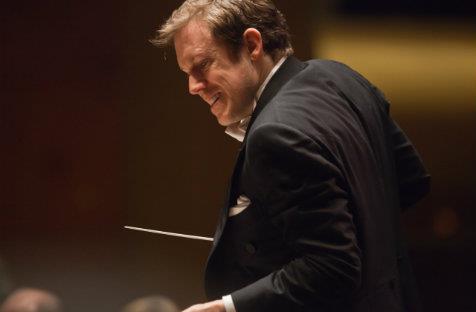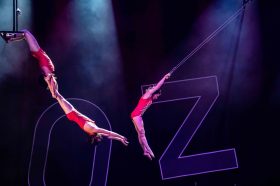Since the designated reviewer of the Mahler Chamber Orchestra’s second concert was suddenly unable to attend, I used my own pre-purchased ticket to write about the concert from the perspective of the back row of the Circle, a vantage point that is very different from the seats usually given to reviewers. Let it be said from the outset that this proved to be no disadvantage, due to the excellence of the orchestra and soloist and the acoustic properties of the Melbourne Recital Centre.
As with the first program, the evening commenced with a more contemporary work, moved to a masterpiece of the concerto repertoire and concluded with a familiar symphony. In this case the brilliant soloist was the celebrated violinist Christian Tetzlaff. Again, the program was thoughtfully constructed, but this time I had no qualms about the nature of the encore items.
Brett Dean’s Testament – Music for Orchestra is related to Beethoven’s life and music. The famous Heiligenstadt Testament, Beethoven’s last will and testament, written on learning of the irreversibility of his loss of hearing, provided the inspiration for Dean’s work. The Mahler Chamber Orchestra brought the colour and dynamic range necessary to graphically depict what is described in the program notes as the ‘quietly feverish sound of Ludwig’s imagined quill, writing manically on leaves of parchment’ near the beginning of the piece along with the later outbursts of loss and anguish. Careful attention to detail on the part of conductor and orchestra was evident throughout this emotionally charged work.
Four years after writing his testament, Beethoven’s violin concerto was performed. A reasonably expansive pace, finely balanced dynamics and technical virtuosity enabled the soloist and orchestra to reveal the intricacies of this extraordinary work and provide new insights. The transparency of the orchestral sound at critical moments and the beautifully polished tone of Tetzlaff’s violin meant that even his quietest pianissimos were audible. The choice of the extended cadenza with accompanying timpani was particularly effective and was followed by the most tender of lyrical passages. It came as no surprise that many audience members felt impelled to clap at the end of the first movement. The following movements were marked by emotional depth and imaginative fantasy, confirming him as an artist renowned for his compelling interpretations. Tetzlaff’s choice of a meditative andante movement from a Bach suite resonated well with what had gone before.
An exhilarating account of Schumann’s Rhenish symphony was a joy to hear. The fullness of symphonic sound achieved by the Mahler Chamber Orchestra was remarkable. Despite a few problems with clean initiation from some of the brass, the orchestra responded to Daniel Harding’s assured direction superbly. The grace of the dancing melodies was given a wonderful lightness of touch and the big moments were approached with gusto.
Bookending the final encore, Daniel Harding presented two slices of celebratory cake, complete with sparklers, to the two Australian violinists to mark the occasion – a touching personal gesture. As for the encore itself: a reprise of the second movement of Dvorak’s ‘New World’ Symphony from the previous evening left us with an echo of Dvorak’s haunting melodies, beautifully rendered, to accompany our ‘going home’.
Rating: 4 ½ stars out of 5
Mahler Chamber Orchestra
Christian Tetzlaff, violin
Daniel Harding, conductor
Program 2
Brett Dean: Testament – Music for Orchestra
Ludwig van Beethoven – Violin Concerto
Robert Schumann – Symphony No. 3 ‘Rhenish’
Melbourne Recital Centre
13 June





